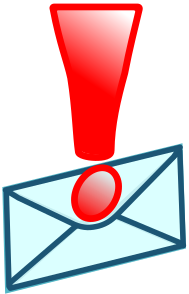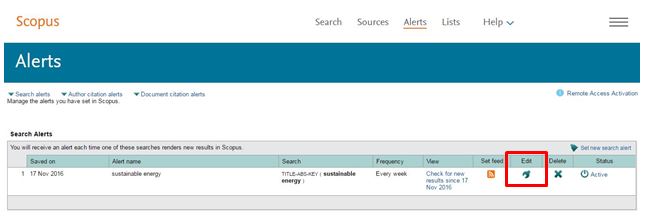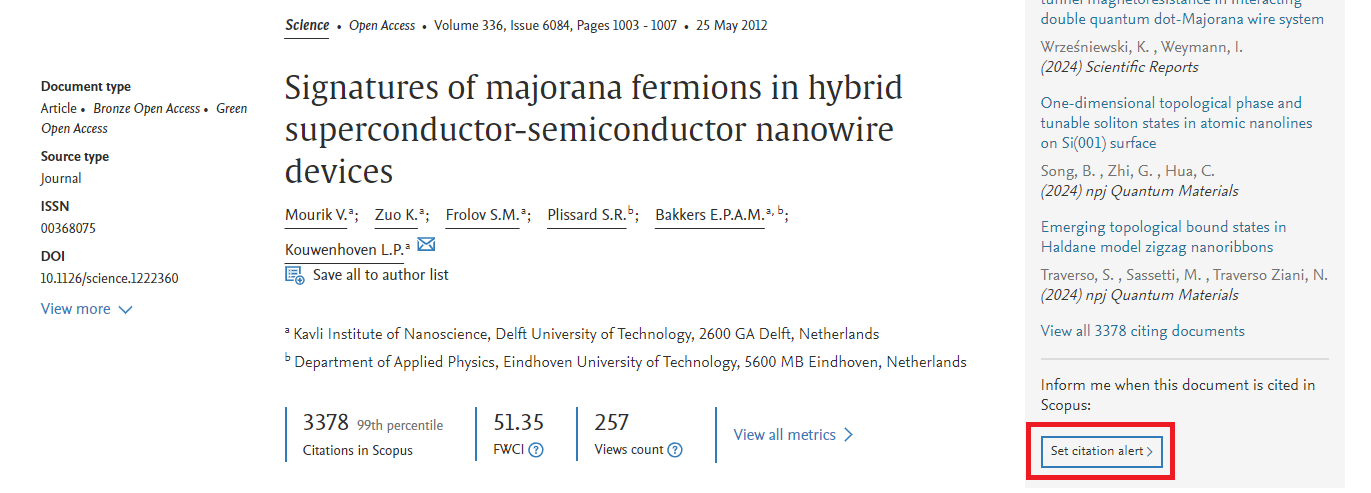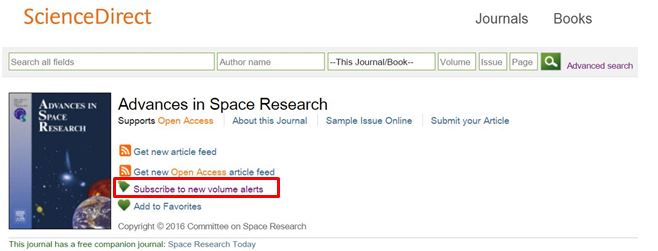Setting up alerts
On this page
In scientific research, it is important to keep up-to-date with the latest developments. You do not want to waste time on looking for new information again and again. See this as a long term investment. If you set up alerts, you will automatically be notified of new search results, citations of a publication, a new table of content of a journal or news items, without having to repeat your search or return to the website to check for new information. Find out what the possibilities are and how it works.
Types of alerts
Just like making a search plan it is good to take some time to set-up an alert plan. Figure out what kind of information you want to receive. This checklist helps you to decide what type of alerts you need.
| Search alert | Citation alert | Table of contents alert | News alert | |
|---|---|---|---|---|
| Journal article | X | X | ||
| Conference proceeding paper | X | X | ||
| Journal | X | |||
| Website | X | |||
| Blog post | X | |||
| Newspaper article | X | X |
Search alert
Have you now formulated a good search query and are you happy with the search results? Many databases provide alerting services for new publications. Use your search query to create alerts in your favourite databases. You will receive updates of the original search results without having to return to the database or repeat the search.
Tip: Be critical about your search results!
If you are not happy with the results, or you have come across new terms in your project, you can always add the new or modified terms to your search queries. Maybe you may to remove terms, because they are not (any longer) relevant or produce irrelevant results.
Citation alert
If you have found a good article, you can follow this with a citation alert. It will let you know when it is being cited. This is particularly useful for following new developments of interesting articles It also helps to discover new publications on the same or on a similar topic.
Table of Contents alert
Another way to be aware of developments on your research topic is to set up a Table of Contents alert (or Volume alert) of a particular interesting journal, that automatically sends you the list of articles for each new issue of the journal. You do not have to check if the new issue is out, because you will automatically be notified.
News alert
You may also need to stay informed with the latest news. Most news websites will offer an alert option to let you know when a news item is added to a particular section of their website. Google provides alert services to cover your topic, you can set up any number of alerts to help you monitor the web.
Managing alerts
There are different ways to receive updates.
E-mail
Receive an e-mail (frequency to be decided by you) whenever your alerts yield new information. An e-mail alert will typically include a title, a short description and a link to the new information.
RSS
If you don’t want to receive alerts in your mailbox, RSS is a good alternative.
RSS (“Really Simple Syndication”) is a way to stay updated automatically about news, blogs or websites. There is no need to visit these websites to search for new articles when you use an RSS-reader. It keeps track of which articles are new to you. However, you will first need to subscribe to a feed.
Use an online feedreader to have access to your alerts wherever you are. Some browsers have integrated feedreaders (for example IE Browser: FEEDS) or you can download a feedreader application for your computer (such as Feedreader.com) or smartphone (e.g. Feedly App).
So, RSS feeds save time; you get an overview of the subject you are interested in and the feed offers a link to the full text article.
Tip: When checking your alerts, get into the habit of immediately storing interesting new references in your reference manager database.
References
Localzuk (2013). Envelope with exclamation mark [Image]. https://commons.wikimedia.org/wiki/File:Envelope-exclamation-mark.svg



